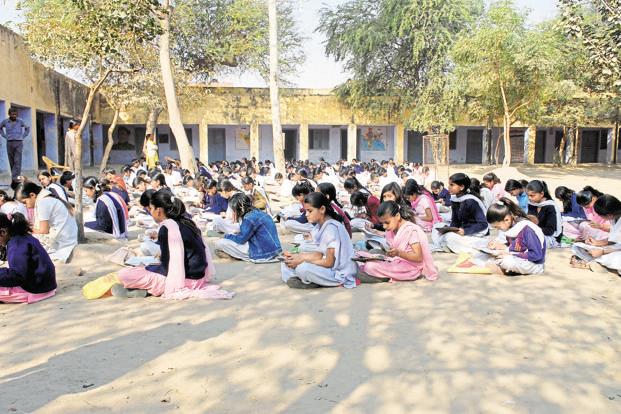
The most important matters in school education, about the nature of education itself and its place in a just and humane society, are not waiting to be discovered. We forget them at our peril. And if we do, we risk repeating the egregious mistakes of the past. We can also be certain about approaches and issues, which will be worked upon and fought about, this year and next. So here is a cheat sheet of 25 such matters for 2017:
1. The aim of school education is to develop good human beings and a good society, and this is foundational to our democracy.
2. This good society is what we have envisioned in our Constitution. The ultimate arbiter of constitutional values should be the supreme court of public reasoning.
3. There is no substitute for public education in a democracy. We must reaffirm this unequivocally, through our actions.
4. We have a special responsibility for school education as a society. Educators have a special responsibility in education —social, political, human and epistemic.
5. Education will be political and has to be. Curriculum and textbooks will be the visible battleground, though even more important is the war about aims and actual practices.
6. Education must have economic aims also, to help India develop and help individuals become economically independent. However, these economic aims must be subsidiary to the notion of good society.
7. All children must have the same good education up to class XII. There must be no “streaming” into vocational and academic; in fact, all children must be exposed to vocational education.
8. Education focused on narrow skills for jobs will leave individuals helpless, because the economy is changing so rapidly. Education must develop fundamental capacities—e.g. independent thinking, problem-solving—so that people can adapt.
9. Private schools do not perform better than public schools, on an average. The dramatic increase in private schooling in the past decade and a half has not improved school education. Privatization and the markets are no solution to the most essential of social goods.
10. Private schools must not be stifled—but commercialization must be stopped, else citizens will be fleeced and education damaged.
11. More testing, assessment and ranking lists won’t improve the quality of education. Using a thermometer more often (or publicly) doesn’t cure a disease. “Testing”-based “accountability” of educators is a disaster, it damages the education system at its core.
12. Technology won’t solve the problem of improvement of learning. It can help, in the same way that books can, but no more. Starry-eyed fascination with technology will lead to useless investment.
13. Governance and culture of the education system must be empowering.
14. The heart of the matter is the capacity of people in the education system, most importantly that of teachers, including school leaders and other education leaders.
15. Teaching is by far the most complex profession in any society—that must be the organizing principle of the system.
16. Our teacher education system (BEd) is by far one of the weakest (and most corrupt) in the world. It needs a complete ground-up rebuild. This will need political capital.
17. We have 8.8 million teachers. This existing teacher base needs massive investment in effective capacity development. We also need an adequate number of teachers in all schools.
18. The best teachers cannot compensate for deprivation and poverty at home. Education and learning are deeply determined by the socio-economic conditions of the child. There must be other mechanisms to tackle this very complex issue.
19. We need dramatic improvement in our early childhood-care system, and also in education for children with disabilities. We also need a lot more secondary and higher-secondary schools across the country.
20. Examinations must be improved to assess real and deep capacities rather than memorization and procedural skills.
21. Mother tongue is the most effective medium of education in early grades. However, given the reality of the social capital of English, all children must have the opportunity to learn the language.
22. Better infrastructure is essential. The reality on the ground is very different from what is claimed, e.g., a large proportion of schools don’t have adequate water.
23. Overall, much more public investment is required. We must move towards 6-8% of gross domestic product for education. Regional and rural-urban disparities must be addressed.
24. Must make allies for change and improvement—especially the teachers. There are good people everywhere. Trusting and empowering teachers is key. Scapegoating and disrespecting them will take us nowhere.
25. There must be integrity and coherence in education, from aims to culture to structure to practice to the human beings involved.
Education is not an economic service. It is a social-human and moral endeavour; it’s about people and their aspirations for the good life. And it is about what we owe each other in a democratic society. To improve it, we need to be stubbornly focused—what I called ziddi in my last column.
[Source:-Livemint]


